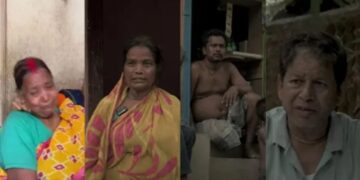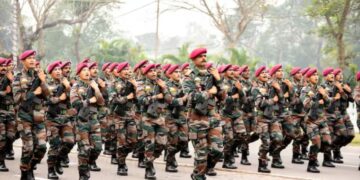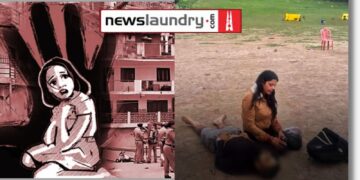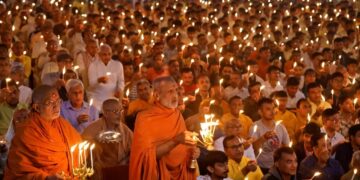KEY POINTS
- Sree Narayana Manava Dharmam Trust challenged the Waqf Amendment Act, claiming harm to Muslims
- President G Mohan Gopal is a Congress-linked figure; media failed to disclose this
- Riots broke out during Waqf Act protests; 3 dead, 400+ Hindus displaced, SIT formed
Many news outlets reported on Monday that a group called the Sree Narayana Manava Dharmam Trust, which claimed to be a Hindu organisation, had filed a petition in the Supreme Court against the new Waqf Amendment Act of 2025. In its petition, the Trust claimed that the new law was very harmful to the Muslim community in India. It claimed the law would destroy the Waqf system, which it said is an important source of financial support for Muslims and Islamic practices.
The Trust warned that this law would push Muslims into financial and economic trouble, and said it was important to protect social justice in the country. News websites like Bar and Bench, Mint, Deccan Herald, and India Legal reported on the case but left out one very important fact — the President of the Trust is G Mohan Gopal, a man with strong links to the Congress party.
Here’s what is known about the Trust and its President:
The Trust was set up only in 2023 in Kerala. Its President, G Mohan Gopal, used to be the second national President of NSUI, the student wing of the Congress party. The Trust has opposed Hindu causes in the past, including the lighting of lamps during the Ram Mandir inauguration in January 2024.
Gopal also opposed the reservation for economically weaker sections (EWS) in the general category, calling it a “cancer in the Constitution.” His opinions match exactly with the Congress party’s stance — whether it’s about the Ram Mandir, EWS reservation, or the Waqf Amendment Act. In the past, he has also accused the judiciary of helping the Sangh Parivar to build a Hindu Rashtra, a controversial claim.
It is misleading for the media to present this Trust as a neutral “Hindu organisation” when its leader clearly has strong political connections and has often opposed Hindu causes. News reports should have disclosed these facts so people understand the full picture.
Violence Against Waqf Act:
Murshidabad
In Murshidabad, West Bengal, a violent mob mobilized after Friday prayers resorted to anarchy under the garb of protest. The demonstrators, from sections of the Muslim community, blocked key intersections like Sajurmor in Sutir and the New Dakbangla junction in Shamsherganj, demanding a rollback of the new Waqf legislation. But the protest soon morphed into a full-blown riot: vehicles were set ablaze, trains and railway stations vandalized, and stones hurled at police and commuters.
In one more incident, violence broke out in Murshidabad district, West Bengal, on Tuesday during a protest against the Waqf Act. The violence happened after a rumour spread that a protester had been injured or died during clashes with the police. Because of this, the authorities have imposed restrictions in the affected areas.
Ahmedabad
Ahmedabad witnessed a similar attempt to create chaos—but with an entirely different outcome. A group gathered near the Kalandari Mosque in the Rakhial area, allegedly with plans to protest by offering Namaz in the middle of a busy road. However, the Ahmedabad police, alert and proactive, swiftly intervened. Detentions were made before the situation could spiral, and calm was restored without allowing chaos to take root.
Murshidabad, West Bengal (April 2025)
Violent protests erupted in Murshidabad district following the enactment of the Waqf (Amendment) Act. The unrest led to the deaths of three individuals, including two Hindus and one Muslim. Over 400 Hindus were displaced, seeking refuge in neighboring Malda district. Properties were vandalized, and public infrastructure suffered significant damage. The West Bengal government imposed Section 144, suspended internet services, and deployed additional police and central paramilitary forces. A nine-member Special Investigation Team (SIT) was formed to probe the violence.
Kadakol Village, Haveri District, Karnataka (November 2024)
Tensions flared in Kadakol village over fears that the Waqf Board would seize local properties, including Hindu temples and houses. This led to violent clashes between communities. Several houses were vandalized, and five individuals sustained injuries. Authorities deployed police forces to restore order and detained 32 individuals for investigation.
Unakoti District, Tripura (April 2025)
Protests against the Waqf (Amendment) Act turned violent in Unakoti district. Eighteen police personnel were injured during the clashes. The state government took measures to control the situation and prevent further escalation.

















Comments